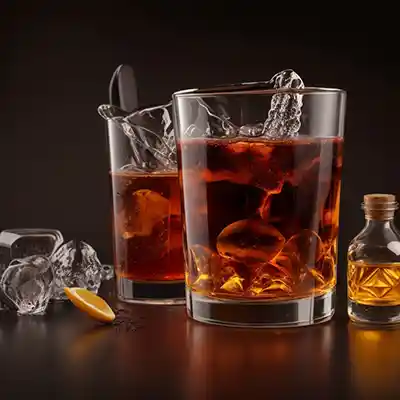Is Alcohol a Diuretic? The Science Behind Your Favorite Drink
Coffeeflare is reader-supported. When you buy through links on our site, we may earn an affiliate commission.

When you’re clinking glasses in celebration or sipping on your favorite drink during a weekend get-together, you may not be thinking about the effect of alcohol on your body. A common question that surfaces is: “Is alcohol a diuretic?” It’s relevant to focus on this keyword which is searched most on Google to fully comprehend how alcohol affects our body’s hydration levels. In this post, we’ll uncover the truth behind this query.
What Does “Diuretic” Mean?
Before we delve into alcohol’s effects, it’s essential to understand the term “diuretic.” A diuretic is any substance that promotes diuresis, which means an increased production of urine. This can be beneficial for people with certain medical conditions, but it can also lead to dehydration if one isn’t careful.
Alcohol and Diuresis: The Connection
The Science Behind It: When you drink alcohol, it inhibits the release of vasopressin. Vasopressin is an antidiuretic hormone (ADH) responsible for regulating the amount of water reabsorbed by your kidneys. Without it, the kidneys send water straight to the bladder, leading to increased urine production.

Alcohol Concentration Matters: Not all alcoholic drinks are created equal. Higher concentrations of alcohol can produce a stronger diuretic effect. This means that beverages with higher alcohol content may make you visit the restroom more frequently.
Hydration and Alcohol: While a cold beer or cocktail might quench your immediate thirst, alcohol’s diuretic properties can lead to dehydration. This is often a significant factor in the dreaded hangover many experience after a night of overindulgence.
How to Counteract Alcohol’s Diuretic Effects
To prevent dehydration and other side effects, consider the following tips:
- Alternate Drinks: For every alcoholic drink, have a glass of water. This helps replenish the fluids you lose due to alcohol’s diuretic properties.
- Eat Before Drinking: Having food in your stomach can slow the absorption of alcohol, which might mitigate some of its diuretic effects.
- Know Your Limits: Always drink responsibly and be aware of your body’s reactions to alcohol. Limiting your intake can prevent excessive dehydration.
The Broader Impact of Alcohol
Alcohol doesn’t just have a diuretic effect; it can influence many aspects of your health. It’s essential to be informed about its broader impacts, from its role in social interactions to potential health risks.
For more scientific insights about alcohol and its interactions with the human body, the Mayo Clinic’s resource is an excellent external reference.
Conclusion
So, is alcohol a diuretic? The definitive answer is yes. While enjoying a drink now and then is a cherished tradition for many, understanding its effects on our body, especially regarding hydration, is crucial.
In conclusion, science confirms alcohol acts as a diuretic, affecting hydration levels by increasing urine production. Factors like caffeine in mixed drinks can intensify this. For every alcoholic drink, pair it with water to maintain hydration. Stay informed and hydrated!
FAQ’s
Is alcohol a diuretic?
Yes, alcohol promotes diuresis, leading to increased urine production.
Why does alcohol make me urinate more?
Alcohol inhibits vasopressin, a hormone regulating water absorption in the kidneys, leading to increased urine output.
Can drinking alcohol lead to dehydration?
Due to its diuretic properties, excessive alcohol consumption can result in dehydration.
Are certain alcoholic drinks more diuretic than others?
Beverages with higher alcohol content may have a stronger diuretic effect.
How can I prevent dehydration when drinking?
Alternate between alcoholic beverages and water, eat before drinking, and know your alcohol consumption limits.
Is the diuretic effect of alcohol related to hangovers?
Dehydration from alcohol’s diuretic effect is a significant factor in hangovers.
How long does the diuretic effect of alcohol last?
It varies based on the amount consumed, but effects can last several hours.
Does beer have the same diuretic effect as spirits?
While all alcohol has diuretic properties, drinks with higher alcohol content might cause more frequent urination.
Do non-alcoholic beers have diuretic effects?
Non-alcoholic beers have reduced or no alcohol, so their diuretic effect is much less pronounced or absent.
Can other beverages or foods have a diuretic effect?
Yes, some foods and drinks, like coffee and certain teas, can also act as diuretics.






